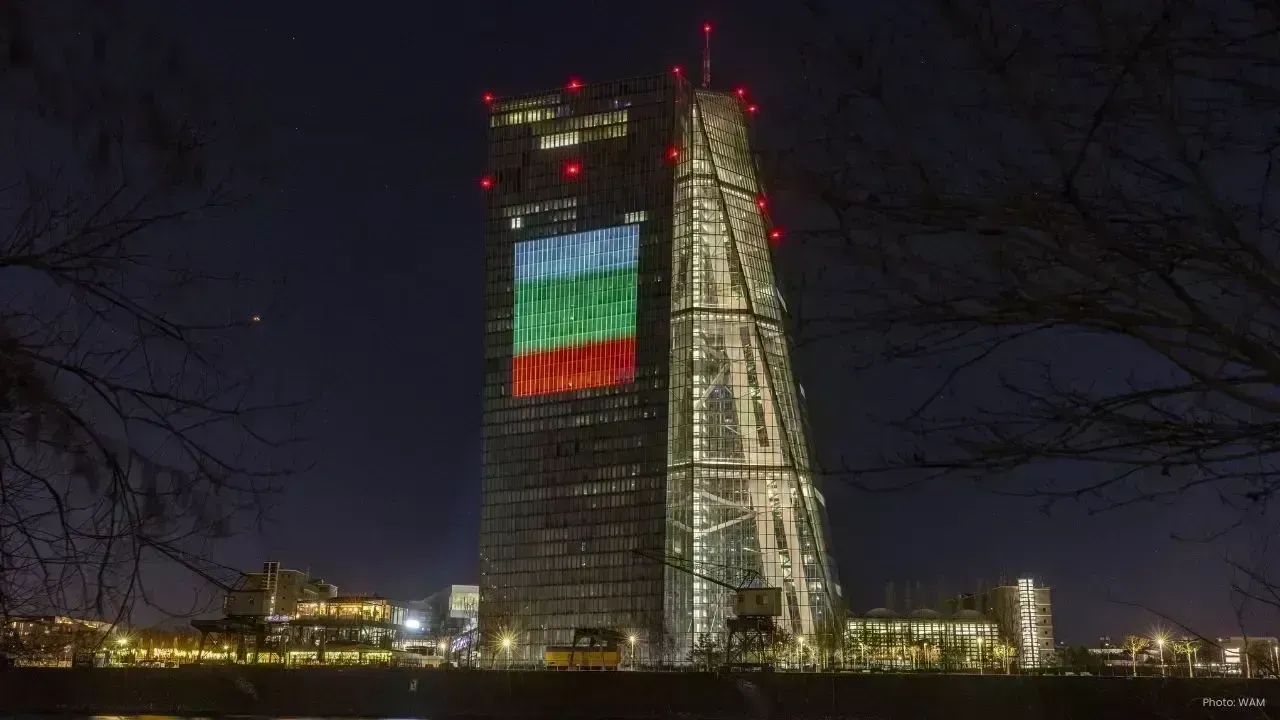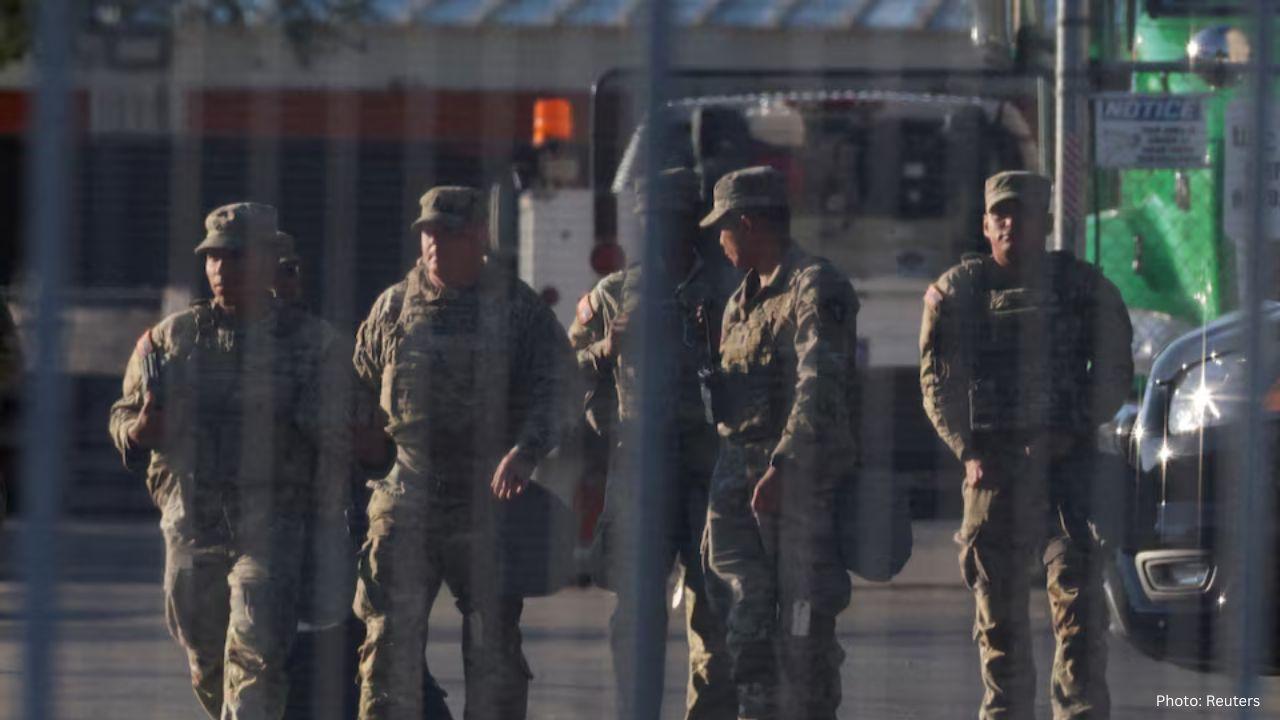You have not yet added any article to your bookmarks!

Join 10k+ people to get notified about new posts, news and tips.
Do not worry we don't spam!

Post by : Rameen Ariff
Photo : AFP
French President Emmanuel Macron has appointed Sébastien Lecornu as the country’s new prime minister, just 24 hours after François Bayrou was ousted in a vote of confidence. Lecornu, a close ally of Macron and 39 years old, takes over at a crucial time as France faces rising public debt, a hung parliament, and growing public protests.
Lecornu has spent the last three years serving as France’s armed forces minister. During this time, he focused on the country’s response to Russia’s war in Ukraine and gained experience managing complex issues at a national level. The Élysée Palace said Lecornu’s first task as prime minister will be to consult political parties and work on France’s next national budget, a task that proved impossible for Bayrou.
François Bayrou resigned after his budget plans failed in the National Assembly. He had proposed €44 billion in spending cuts, but the vote of confidence ended with 364 members opposing his plan and 194 supporting it. Bayrou’s resignation paved the way for Lecornu to become the seventh prime minister under Macron’s leadership and the fifth in Macron’s second term.
On social media, Lecornu emphasized his priorities, stating he had been entrusted with “building a government with clear direction: defending our independence and our strength, serving the French people, and ensuring political and institutional stability for the unity of our country.” Analysts say this reflects Lecornu’s awareness of the multiple challenges ahead, particularly in dealing with France’s growing public debt, which now stands at €3.3 trillion, or 114% of the country’s GDP.
Political reactions to Lecornu’s appointment have been mixed. Centrist allies, including Marc Fesneau from Bayrou’s MoDem party, welcomed the choice and called for compromise across political lines to ensure stability and progress on the budget. On the left, Jean-Luc Mélenchon of France Unbowed criticized the appointment, saying that nothing had changed and suggesting that it was time for Macron to step down.
The far-right also expressed skepticism. Marine Le Pen said the appointment represented “giving Macronism its last shot from his bunker, along with his little circle of loyalists.” Analysts note that Macron faces a difficult balancing act, with a parliament divided among three major political blocs: the left, the far-right, and the centre. A hung parliament since the snap elections in 2024 has made governing challenging and made compromises essential.
Former prime minister Édouard Philippe, who served from 2017 to 2020, described Lecornu as a strong choice. He praised Lecornu’s experience as defence minister and highlighted his skills in debate and negotiation, which will be crucial as he tries to bring together a majority for France’s budget. Philippe emphasized that without an agreement on budget reforms, France risks another political crisis and potentially new elections.
Lecornu’s appointment comes as France braces for public unrest. Grassroots movements such as Bloquons Tout, or “Let’s Block Everything,” have planned widespread protests in response to the government’s economic and political policies. Authorities are preparing for these demonstrations, deploying around 80,000 police officers to maintain order.
Adding to the pressure, credit rating agency Fitch is scheduled to reassess France’s debt on Friday. If Fitch lowers the country’s rating from AA-, borrowing costs for the government could rise, putting further strain on Lecornu’s administration. This situation makes his task of building a stable and effective government even more urgent.
Lecornu’s immediate challenge is to navigate a parliament that does not have a clear majority. Macron’s government is considered a minority government, meaning that support from opposition parties will be necessary to pass legislation, especially the budget. While Olivier Faure of the Socialist Party offered his support before Lecornu’s appointment, the phone call never came, signaling the difficulty of reaching compromises in the current political climate.
Observers note that Lecornu’s approach will likely focus on negotiation and dialogue. His experience as a young minister dealing with defence and international affairs could help him manage the complex political landscape. The need to unite different factions to pass the budget and maintain political stability will test Lecornu’s leadership skills from the very start.
Economic concerns are central to the political tension in France. Spiralling debt, coupled with the need for reforms in spending and taxation, has created pressure on both the government and the public. Citizens are worried about rising costs and potential cuts in public services. At the same time, opposition parties are using these issues to challenge Macron’s government and influence public opinion.
The situation in France reflects broader challenges faced by governments worldwide. Balancing fiscal responsibility with social welfare, navigating divided legislatures, and maintaining public trust are key issues that require careful leadership and strategic decision-making. Lecornu’s ability to manage these challenges will be closely watched both in France and internationally.
In addition to budget and debt concerns, Lecornu must also handle social and political unrest. The protests and demonstrations in France, combined with the threat of further mobilization by grassroots movements, present immediate challenges for security and governance. The army and police are on high alert, and Lecornu’s leadership will be tested in managing both policy and public order.
Lecornu’s task is made even more complex by the expectations set by Macron. As a close ally, Lecornu is expected to maintain continuity with the president’s policies while also showing his capability to handle the pressing economic and political issues independently. The delicate balance of loyalty, innovation, and negotiation will define his early days in office.
Analysts emphasize that Lecornu’s success depends on three key areas: building consensus in a divided parliament, stabilizing France’s finances, and managing public opinion. Failure in any of these areas could lead to political instability, protests, or even early elections. Conversely, successful management could strengthen Lecornu’s position and provide a more stable path for Macron’s administration.
Sébastien Lecornu’s appointment as France’s new prime minister marks a pivotal moment in the country’s political history. Facing economic challenges, a hung parliament, and social unrest, Lecornu must quickly demonstrate leadership, negotiation skills, and strategic thinking. His performance will not only influence France’s political stability but also shape the country’s economic future and public confidence in government institutions.
As Lecornu begins consultations with political parties and prepares for urgent budget decisions, the eyes of France and the international community are focused on how he will navigate this complex and high-pressure environment. With determination, careful planning, and effective dialogue, Lecornu has the opportunity to establish himself as a capable leader and guide France through a critical period of political and economic uncertainty.










Dhurandhar Day 27 Box Office: Ranveer Singh’s Spy Thriller Soars Big
Dhurandhar earns ₹1117 crore worldwide by day 27, becoming one of 2026’s biggest hits. Ranveer Singh

Hong Kong Welcomes 2026 Without Fireworks After Deadly Fire
Hong Kong rang in 2026 without fireworks for the first time in years, choosing light shows and music

Ranveer Singh’s Dhurandhar Hits ₹1000 Cr Despite Gulf Ban Loss
Dhurandhar crosses ₹1000 crore globally but loses $10M as Gulf nations ban the film. Fans in holiday

China Claims India-Pakistan Peace Role Amid India’s Firm Denial
China claims to have mediated peace between India and Pakistan, but India rejects third-party involv

Mel Gibson and Rosalind Ross Split After Nearly a Decade Together
Mel Gibson and Rosalind Ross confirm split after nearly a year. They will continue co-parenting thei

Rashmika Mandanna, Vijay Deverakonda Set to Marry on Feb 26
Rashmika Mandanna and Vijay Deverakonda are reportedly set to marry on February 26, 2026, in a priva